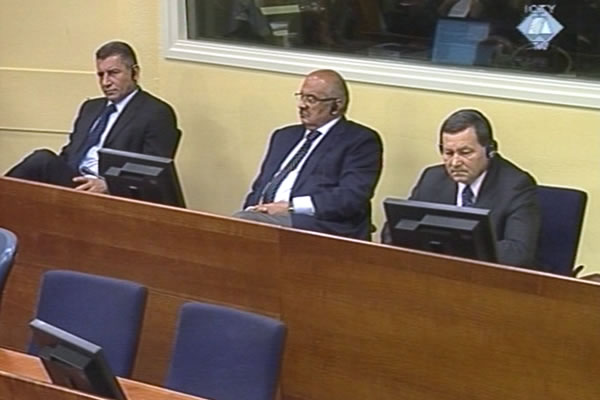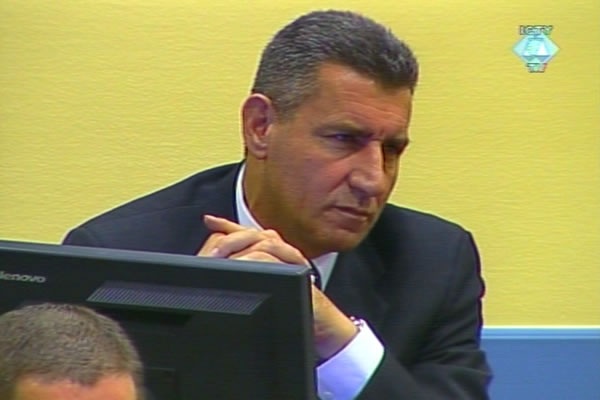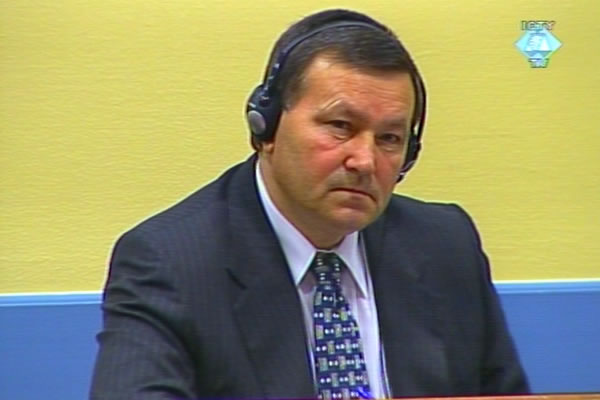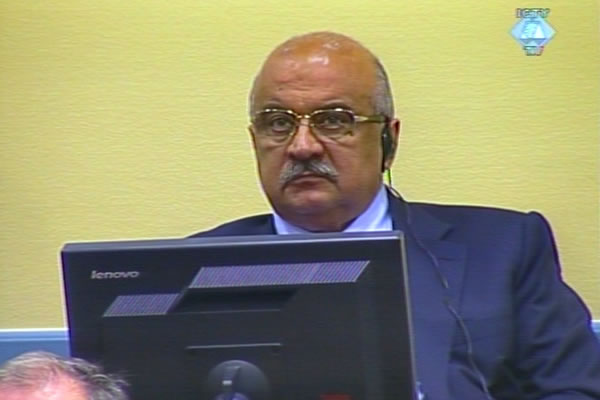Home
TRIAL OF CROATIAN GENERALS ENDS
The trial of three Croatian generals for crimes during and after Operation Storm ended today after three days of closing arguments. The prosecution asked for 27 years in prison for Ante Gotovina, 17 years for Ivan Cermak and 23 for Mladen Markac. The defense teams called for their clients’ acquittal. The judgment is to be delivered ‘in the foreseeable future’, most probably by the end of the year
 Ante Gotovina, Ivan Cermak i Mladen Markac in the courtroom
Ante Gotovina, Ivan Cermak i Mladen Markac in the courtroom The trial of three Croatian generals for crimes during and after Operation Storm in the summer of 1995 ended today. The prosecution and defense exchanged responses in an effort to challenge the claims made in the past two days of closing arguments. The judgment will be delivered ‘in the foreseeable future’, presiding judge Orie indicated.
Ante Gotovina’s defense claimed yesterday that the prosecution had failed to prove disproportionate shelling of Knin because no photographs or videos of the destruction in the town had been exhibited. In his reply, prosecutor Tieger reminded the court that it was not the prosecution’s case that Knin had been ‘reduced to rubble’, like Vukovar or Stalingrad. It was shelled in order to scare the people and make them flee, he said.
As the prosecutor said, during Operation Storm about 1,000 shells hit Knin; a mere handful hit the military targets in the town. There was no large-scale destruction because the artillery attacks were not focused on specific points, but dispersed all over town to cause panic, the prosecution contends. In response to the defense’s claim that the prosecution’s arguments were too complex, prosecutor Tieger said that the course of events in Operation Storm was very simple: first, a decision was taken on 31 July 1995 at a meeting in Brijuni to use artillery to cause panic and force the civilians to flee Krajina, then General Gotovina, who commanded the operation – issued an order on 2 August 1995 to shell entire towns and not only military targets, and two days later the attack started. In their evidence before the Trial Chamber, those who witnessed the attack said that civilians were targeted.
Yesterday, the defense of the former special police commander Mladen Markac claimed that Markac was not in a position to know what exactly had happened in the village of Grubori on 25 August 1995 and who had taken part in the murder of five elderly Serbs and burning of the Krajina village. The prosecution today countered this argument, claiming that when he had learned about the murder and arson in the village of Grubori, Markac could simply take a phone and call his subordinates to determine which unit was deployed along that axis and then to pull it out from the cleanup operation. Instead, the Lucko unit was sent to the village of Ramljane, which was burned down the next day.
The prosecution today contested the arguments put forth by Ivan Cermak’s defense that he – as the commander of the Knin Garrison – was not superior to the military police. The prosecutor brought up a statement given to the OTP by the commander of the Knin military police company, Bosko Djolic, who said he had been subordinated to Cermak as he went about his day-to-day business. The prosecutor today argued that Cermak was very close to President Tudjman: their frequent meetings after Operation Storm confirm it. This is contrary to what the defense claimed yesterday.
Responding to the prosecution’s arguments, Gotovina’s defense again dismissed the allegation that Knin had been shelled with disproportionate force, noting that even the Krajina Serb army intelligence reports talk about the shelling of military targets – such as the Northern Barracks, the Serb army HQ and the Tvik Factory. The prosecution had argued that the efforts to prevent the Serb refugees from returning was evidence that there was a joint criminal enterprise to ethnically cleanse Krajina; Gotovina’s defense counsel Akhavan replied today that Croatia had the right to temporarily prevent the Serbs from returning because they were ‘hostile citizens’ who were not Croatian nationals at all, but held citizenship of the former SFRY.
Defense counsel Kay dismissed the prosecution’s claims that Ivan Cermak was close to Tudjman and that Cermak’s role in Knin was already defined at the Brijuni meeting. As Markac’s defense lawyers maintained, their client didn’t know what had happened in the village of Grubori. They also denied that the special police had looted the town of Gracac.
All three defense teams today again called for the accused to be acquitted, calling the three generals ‘honorable, honest officers who performed their duties to the best of their abilities’. The prosecution has asked for 27 years in prison for Gotovina, 23 years for Markac and 17 years for Cermak.
Photos
Linked Reports
- Case : Gotovina et al. - "Operation Storm"
- 2010-08-31 DEFENSE: ‘WORLD OWES A DEBT OF GRATITUDE TO GOTOVINA’
- 2010-08-30 PROSECUTION: ‘CRIMES ARE CONTROVERSIAL, NOT OPERATION STORM’
- 2010-07-20 NEW DETAILED SEARCH OF EU ARCHIVES YIELDS NO RESULTS
- 2011-03-14 JUDGMENT FOR CROATIAN GENERALS DUE ON 15 APRIL
- 2011-03-18 PUBLIC ASPECT OF CONFIDENTIAL DOCUMENTS
- 2011-03-22 GOTOVINA DOESN’T WANT THE EUROPEAN MONITORS’ REPORTS TO REMAIN UNDER SEAL



